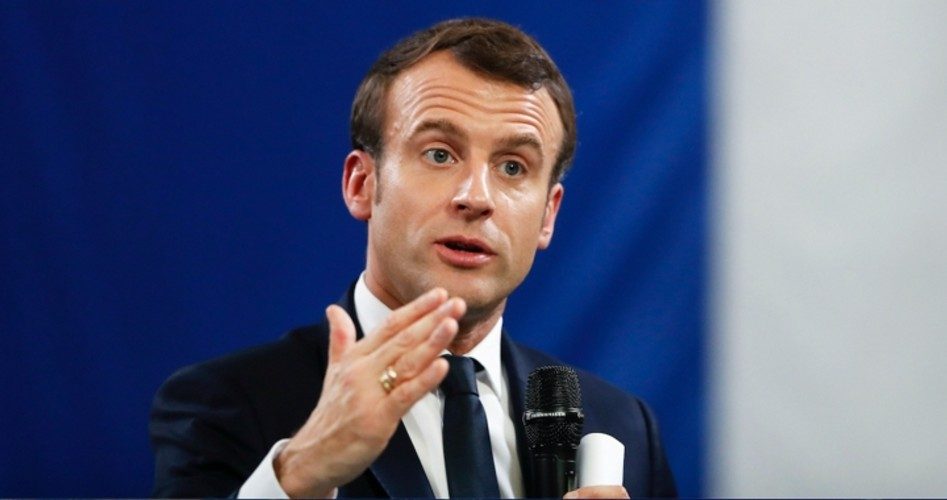
After months of Yellow Vest protests that have sapped the popularity and patience of French President Emmanuel Macron (shown), the embattled head of state is considering taking his problems to the people in a referendum. Such a referendum would address the concerns of French citizens about unfair taxation and other key issues.
At a recent townhall meeting with young people in a southern suburb of Paris, Macron hinted that he might consider a referendum in order to address people’s concerns about the French government. “At some point, I might end up having to ask our citizens about this or that,” he stated.
Post-war French leader Charles de Gaulle, the architect of the current French Constitution, included referendums as a form of direct democracy, to give citizens a say on controversial issues. But French governments have been hesitant to use referendums, having done so only five times, the last time in 2005 when citizens rejected a new European Constitution — a crushing blow for then-president Jacques Chirac.
One need only look across the English Channel as to why referendums are rarely used by governments. The Brexit Referendum has caused political chaos in the U.K.
“You go for double or quits to try to get out of a crisis,” observed Jean-Phillipe Derosier, a law professor and constitutional expert, “at the risk of being plunged into an even deeper crisis.”
But Macron may be in a tough enough spot that such a risk is warranted. His approval rating has dropped as low as 25 percent in recent weeks, as a growing number of French citizens have come to see Macron — who came to power as a populist — as just another globalist elite who doesn’t care about his citizens.
{modulepos inner_text_ad}
“One of the main takeaways from the Yellow Vest movement is the impression that many in France believe that they are not given enough consideration by discredited political elites,” Jean Garrigues, a history professor at Sciences Po and Orleans universities told French news agency AFP.
Yellow Vest protests first sprang up in rural France over new fuel taxes, which were meant as a measure to address so-called climate change. Fuel taxes fell particularly hard on rural citizens who need to drive for their jobs. But the movement quickly grew into a more general protest about Macron and how the French government unfairly taxes the working and middle classes of the nation. Many felt that they had fallen into a hole in the system where they were too wealthy to receive certain social benefits, but too poor to make ends meet.
An ardent climate-change alarmist, Macron initially moved to postpone the next scheduled rise in the fuel tax, which was to occur in January. As the protests continued, future tax increases have been suspended for the time being.
Macron next proposed 10 billion euros ($11.4 billion) in tax cuts to lower-income French citizens. This was on top of approximately four billion euros lost to government coffers with the cancellation of the fuel-tax hikes.
To further attempt to address the concerns of protesters, Macron launched a series of public consultations, which he dubbed “the Great National Debate.” The “debate” is actually a series of townhall meetings across the country where Macron meets with frustrated citizens who have come to regard him as a distant elitist, who doesn’t know or care about their everyday issues.
The debates have helped Macron slowly gain back some of the popularity he had lost in his 20-month tenure as president, but the protests continue and have become increasingly violent. One ghastly incident included a man’s hand being blown off by a police flash grenade.
So, Macron is definitely under pressure to act. A referendum, as risky as it is, might be his best move at this point.
Going down the referendum road is fraught with potential problems. Among them is what questions to ask. The Yellow Vest protests have moved far beyond the original fuel-tax issue. Macron needs to walk a thin line between questions that are meaningful to the public and questions that might lead to a damaging defeat for him personally.
“People generally forget to answer the question asked and instead answer the person asking the question — making it a plebiscite on whether they support the president or not,” he stated.
A referendum could happen as early as May 26, when French citizens go to the polls to vote for their delegation to the European Parliament.
Photo of French President Emmanuel Macron: AP Images




